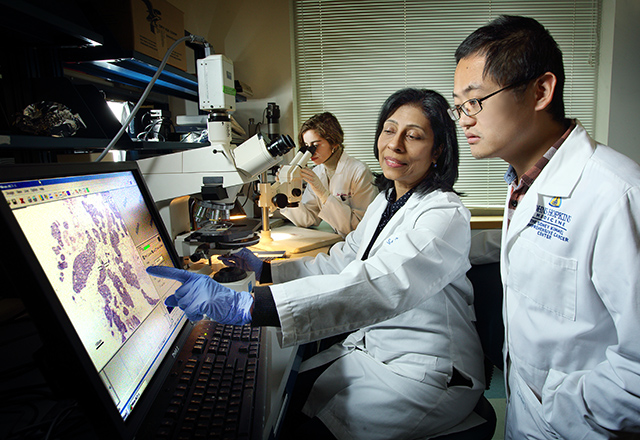For a graduate student or postdoc, choosing the right laboratory can be a daunting prospect. There are many factors that one must consider, but deciding which to prioritize is often challenging. Individual learning styles, interests and career goals vary vastly, so an environment perfectly suited to one person may be one where another flounders. That said, and having made this decision twice, both as a graduate student and as a postdoc, I’ve learned that there are some important factors that one ought to consider when choosing a lab. Below, I have compiled a list of tips that might help with this decision. This list isn’t meant to be exhaustive; it’s just some useful pointers that may not be immediately apparent to the novice.
Choose a research subject you can get excited about.
Looking for a lab that researches a topic you’re interested in is a great way to start. You will likely spend several years in this lab; researching something you are deeply curious about will make the inevitable rough patches less burdensome. If you’re a graduate student, you may be unsure of what your “raison d’être” is — and that’s okay. Perhaps you’ll benefit from a lab with a broad research focus, one that can teach you a large arsenal of techniques that will hold you in good stead later in your career.
As a first-year graduate student looking for labs to rotate in, I rather naively believed that research interest was all I needed to consider while choosing a lab. While interesting research is important, factors such as the principal investigator’s mentorship style, lab environment, publications and funding are also crucial.
Reflect on what type of scientific mentor is best for your needs — and don’t be afraid to ask questions.
There are many different mentoring styles; some mentors are more hands-off than others. I found that I needed a more hands-on approach early on, as a graduate student, and more independence as a postdoc. Deciding your preferred mentoring style as you embark on your search should make things easier, and can help guide the types of questions you may ask a potential mentor while making this important decision.
Perhaps most importantly, your mentor should be able to facilitate the accomplishment of your career goals. Having an honest conversation about your goals early on in your stint should set the ball rolling, and is a great opportunity to ask questions. Questions such as “What are your former mentees doing now?” are great for identifying a lab that can prepare you for the job you want. A PI who has mentored many successful students is more likely to be a good mentor.
Find a lab that is conducive to your well-being and productivity.
Use your rotation/interview to gauge the interactions between lab members: Does there appear to be frequent conflict, or do relationships appear strained? Also try to ask both current and former lab members about their unvarnished opinion on the PI’s mentorship style and lab environment. If you’re a rotating student, you’ll have at least several weeks to get a feel for how the lab is run. This can be harder if you’re interviewing for a postdoctoral position; having one-on-one conversations with lab members while you’re interviewing is crucial. If your prospective PI seems reluctant to arrange for an in-person interview, this could signal a red flag.
Note how you’re treated during your rotation/interview. Are lab members helpful and attentive? If you’re interviewing for a postdoctoral position, does the PI expect you to foot the bill for travel and accommodations? If you sense that you’re being ignored or feel otherwise mistreated during your rotation/interview, this does not bode well for the future!
Consider the quality and quantity of publications generated by the prospective lab.
Labs differ in terms of publication frequency and impact factor of the journals they publish in. If you’re considering staying in academic research, you’ll want to be in a lab that publishes frequently in well-respected journals. A word of caution: A lab that produces many high-impact factor papers may have a stressful, high-pressure culture that may be less than nurturing.
Ask how much funding a prospective lab has.
Understanding precisely how much funding a prospective lab has before making a commitment is also important. While applying for fellowships and grants to fund your work is great, having to do it because you will not otherwise be able to finish your Ph.D. or have a job can be incredibly stressful.
Don’t be afraid to ask other people for advice.
While looking for a postdoctoral position, I found several science blogs and career forums that discuss a plethora of problems that graduate students and postdocs commonly face. Science Careers has a great forum chock-full with people dispensing sage career advice. Don’t be afraid to seek out advice from more experienced people on these sites or to reach out to older students, postdocs or former mentors.
Deciding which lab to join is a momentous decision. Finding a lab that fits the bill perfectly — one that matches your research interests, preferred mentoring style, lab environment, publications record and funding — can be tricky, but not impossible. Hopefully you’ll be able to make the right decision and enjoy doing science!
